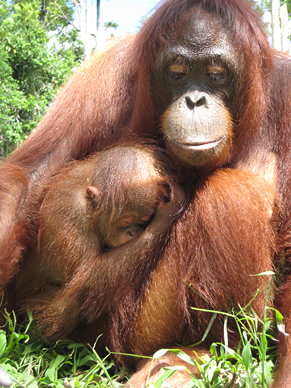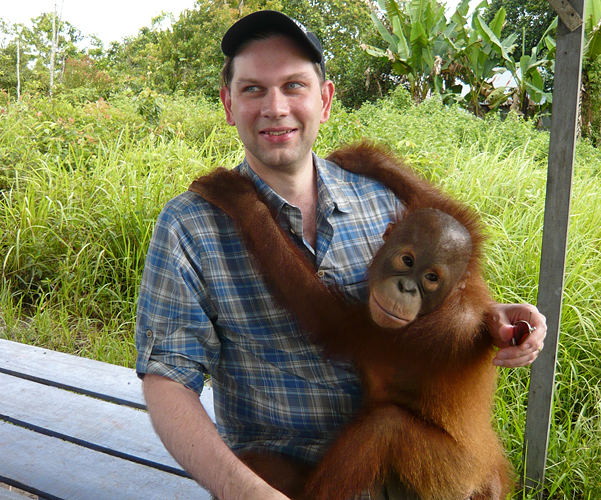Allianz has made a direct investment in climate protection in emerging markets for the third time since 2012. The area of Rimba Raya (translated “Infinite Forest”) spans 64,000 hectares or 640 km2, an area twice the size of Munich, and is located in the south of the island of Borneo. This investment will protect the area of jungle in the southeast Asian country of Indonesia from the threat of deforestation and will also preserve a center dedicated to protecting the orangutan population. An agreement has been reached with the Indonesian government not to disclose the volume of the investment.
Allianz's investment will help to prevent the threat of deforestation and, as a result, the emission of 90 million tons of CO2 over a 30-year period. The project will provide Allianz with certificates that it can use to offset its own emissions, meaning that the investment is to Allianz's advantage. Allianz has been operating on a 100 percent climate-neutral basis since 2012 thanks to a combination of moves to reduce its own emissions and certificates like these.
"For investors like Allianz, carbon markets make it possible to finance climate protection by channeling capital to projects like Rimba Raya in developing and emerging economies," said Rod MacDonald, who is responsible for this investment at Allianz Global Investors," Now we expect the international community to develop the necessary framework for an extensive implementation of REDD."
Back in 2011, Allianz became involved in a forest protection project in Kenya, the first project in the world to be given REDD (Reducing Emissions from Deforestation and forest Degradation) status. REDD projects involve the local population and ensure that any financial income is used locally, for example to build schools or finance vocational training for the local people.
This was followed, in 2012, by the investment in a project in India to replace conventional light bulbs in private households with energy-saving equivalents. Rimba Raya is the world's first REDD project to bear the triple CCB Gold Label (Climate, Community & Biodiversity Alliance) and the first that can generate certificates in line with the market-leading VCS (Voluntary Carbon Standard).
In addition to these projects, Allianz ranks among the leading investors in renewable energies, with 39 European wind farms and seven solar parks (930 MW, 1.7 billion euros).

